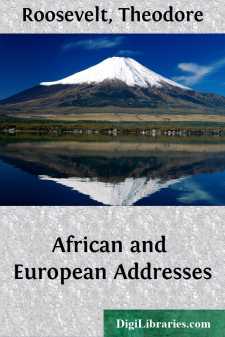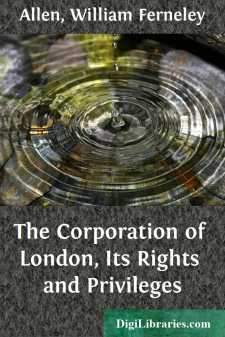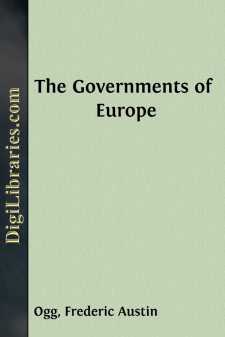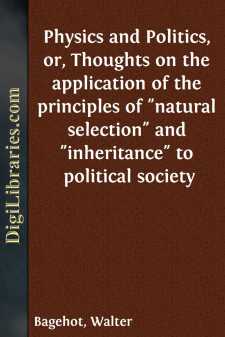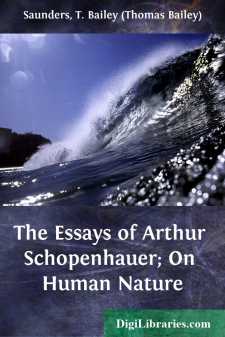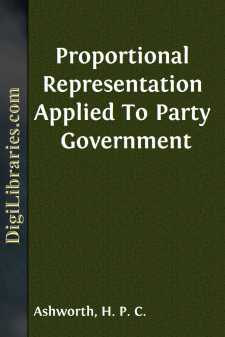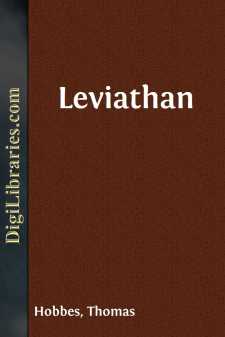Political Science
- Conspiracy & Scandal Investigations 1
- Constitutions 7
- Economic Conditions 10
- General
- Government 6
- History & Theory 132
- Peace 1
General Books
Sort by:
by:
Edmund Burke
FOURTH LETTER ON THE PROPOSALS FOR PEACE WITH THE REGICIDE DIRECTORY OF FRANCE. ADDRESSED TO THE EARL FITZWILLIAM. 1795-7. Letter from the Right Honorable the Lord Auckland to the Lord Bishop of Rochester. EDEN FARM, KENT, July 18th, 1812. My dear Lord,—Mr. Burke's fourth letter to Lord Fitzwilliam is personally interesting to me: I have perused it with a respectful attention. When I...
more...
by:
Edmund Burke
A LETTER TO A MEMBER OF THE NATIONAL ASSEMBLY, IN ANSWER TO SOME OBJECTIONS TO HIS BOOK ON FRENCH AFFAIRS. 1791. Sir,—I had the honor to receive your letter of the 17th of November last, in which, with some exceptions, you are pleased to consider favorably the letter I have written on the affairs of France. I shall ever accept any mark of approbation attended with instruction with more pleasure than...
more...
Introduction Mr. Roosevelt as an Orator In the tumult, on the one hand of admiration and praise and on the other of denunciation and criticism, which Mr. Roosevelt's tour in Africa and Europe excited throughout the civilized world, there was one—and I am inclined to think only one—note of common agreement. Friends and foes united in recognizing the surprising versatility of talents and of...
more...
The first historical notice of the City of London occurs in that portion of the Annals of Tacitus which treats of the insurrection of Boadicea. At that time it was a place much frequented by merchants, attracted partly by the natural advantages of the site, and partly by the vicinity of the Roman camp at Islington. It is stated that 70,000 persons, of both sexes and of all ages, were massacred by that...
more...
PREFACE It is a matter of common observation that during the opening years of the twentieth century there has been, in many portions of the civilized world, a substantial quickening of interest in the principles and problems of human government. The United States is happily among those countries in which the phenomenon can be observed, and we have witnessed in recent times not only the organization of...
more...
by:
Walter Bagehot
THE PRELIMINARY AGE. One peculiarity of this age is the sudden acquisition of much physical knowledge. There is scarcely a department of science or art which is the same, or at all the same, as it was fifty years ago. A new world of inventions—of railways and of telegraphs—has grown up around us which we cannot help seeing; a new world of ideas is in the air and affects us, though we do not see it....
more...
HUMAN NATURE. Truths of the physical order may possess much external significance, but internal significance they have none. The latter is the privilege of intellectual and moral truths, which are concerned with the objectivation of the will in its highest stages, whereas physical truths are concerned with it in its lowest. For example, if we could establish the truth of what up till now is only a...
more...
CHAPTER I. THE TRUE PRINCIPLES OF POLITICAL REPRESENTATION. Old establishments, like the British Constitution, said Edmund Burke, "are not often constructed after any theory; theories are rather drawn from them." In setting out on an endeavour to understand the principles underlying political representation, the saying expresses exactly the course which should be followed. The inquiry is the...
more...
by:
Charles Kingsley
WOMEN AND POLITICS. Somewhat more than 300 years ago, John Knox, who did more than any man to mould the thoughts of his nation—and indeed of our English Puritans likewise—was writing a little book on the ‘Regiment of Women,’ in which he proved woman, on account of her natural inferiority to man, unfit to rule. And but the other day, Mr. John Stuart Mill, who has done more than any man to mould...
more...
by:
Thomas Hobbes
CHAPTER I. OF SENSE Concerning the Thoughts of man, I will consider them first Singly, and afterwards in Trayne, or dependance upon one another. Singly, they are every one a Representation or Apparence, of some quality, or other Accident of a body without us; which is commonly called an Object. Which Object worketh on the Eyes, Eares, and other parts of mans body; and by diversity of working, produceth...
more...




